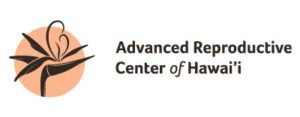Diagnosing Infertility
Pre-Implantation Genetic Testing (PGT)
PGT includes PGS or Pre-implantation Genetic Screening and PGD or Pre-implantation Genetic Diagnosis. Both are well proven technologies that have recently increased in popularity. The terminology is somewhat confusing. PGS can test for an irregular arrangement in the total number of chromosomes(Aneuploidy), whereas PGD can test for a specific gene abnormality that one or both partners can have (such as Tay Sachs or Cystic Fibrosis).
Normally all of our genes, or our genetic material, are arranged on chromosomes. We each have 23 pairs of chromosomes. One set of chromosomes comes from the egg and one set comes from the sperm. At conception, when the sperm penetrates the egg, the egg needs to bring these chromosomes together just right so there are 23 pairs of chromosomes.
As we get older, the architecture inside the egg gets older and is not as proficient as when it was younger in bringing these two sets together, so there is an increased chance of having an irregular number of chromosomes in the developing embryo. We call this irregular number of chromosomes Aneuploidy. Down’s Syndrome is the most well-known form of aneuploidy, when there is a normal complement of chromosomes, 23 pairs, plus an additional number 21 chromosome resulting in a “trisomy,” or three sets of Chromosome 21. PGS testing can test the arrangement of each embryo reducing the chances of putting back an abnormal embryo. The accuracy of PGS and PGD is approximately 99%. Putting back a chromosomally normal embryo can significantly decrease your chances for having a miscarriage.
Pre-implantation Genetic Testing is usually performed on the fifth day after egg retrieval or the blastocyst stage. At this point there are many cells in the developing embryo. Our embryologist, using a laser and microscopic techniques, delicately creates a hole in the shell of the embryo and then removes several cells from each of the developing embryos. These are then placed in a special solution and delivered to our affiliate laboratory, CooperGenomic (the most experienced cytogenetics laboratory in the world). The laboratory will then use the newest and most advanced technologies to determine which embryos are affected. We feel strongly that the most accurate test should be performed on these cells. Not all IVF programs use the most accurate testing techniques.
That information is relayed back to us and the good embryos are then used for embryo transfer.
The number one cause of infant deaths in the U.S. has genetic implications. (2001, Data from National Center for Health Statistics CDC). Seven percent of stillbirths and neonatal deaths have chromosomal abnormalities. (Patients Fact Sheet Genetic Screening for Birth Defects, ASRM 2002).
Recurrent miscarriages and repetitive failed IVF may also be due to genetic abnormalities. Preimplantation genetic diagnosis (PGD) can be used as a diagnostic procedure to identify embryos that carry genes for certain diseases. If a parent or parents have or are carriers of a certain genetic disorder, the embryos created can be tested for this disease. Special probes are designed specifically for the parent’s disorder.
PGD is performed in a similar fashion to PGS. Once the cells are isolated, the specific probe can be used to identify affected embryos. Only embryos classified as normal will be transferred back into the woman’s uterus.
“The advantage of accurately diagnosing these genetic abnormalities in the embryo obviates the 25% to 50% risk of transferring an affected embryo with the specific abnormality in question.”
–A Practice Committee Report: Preimplantation Genetic Diagnosis, ASRM. June 2001
Over 300 different disorders can currently be diagnosed and prevented using PGD.
PGS combined with our cutting edge research involving the embryoscope and time-lapse photography may help select better quality embryos for transfer, decreasing the time to pregnancy and delivery.
PRE-IMPLANTATION GENETIC TESTING IN HAWAII
Contact us today about Pre-implantation Genetic Testing here in Honolulu, Hawaii. Come in for a consultation about the next step and what can be done to make your family dream a reality.
Call (808) 949-6611 to Schedule Your Fertility Consultation or

